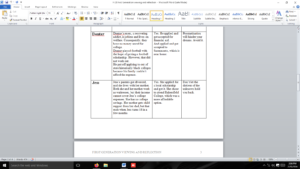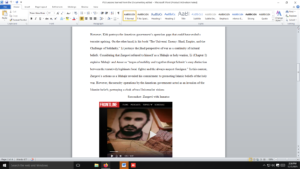First Generation Viewing and Reflection
We have now seen the challenges/barriers some successful individuals have had to overcome on their way to an education. But now, I want us to think a little closer to home, in something that may be more relevant to what you may be experiences. To do so, we will watch a documentary called First Generation. As the name would suggest, it focuses on four California students who are the first in their families to go to college. They each have different barriers to cross.
Step 1:
Step 2:
As you watch, work to complete the worksheet below.
https://gcccd.instructure.com/
And you will go under modules week 3 you find it
Answer preview
Dontay Dontay’s mom, a recovering addict, is jobless and lives on welfare. Consequently, they have no money saved for college. Dontay played football with the hope of getting a football scholarship. However, that did not work out.
He put off applying to out of state historically black colleges because his family couldn’t afford the expense.
Yes. He applied and got accepted for financial aid. And applied and got accepted to Sacramento, which is near home.
Procrastination will hinder your dreams. Avoid it. Jess Jess’s parents got divorced, and she lives with her mother. Both she and her mother work as waitresses, but their income cannot cover Jess’s college expenses. She has no college savings. Her mother gets child support from her dad, but that ends when Jess turns 18 in a few months.
Jess is a brilliant student and can get into any UC college. However, she couldn’t afford to apply to a UC as it cost $50.
Yes. She applied for a local scholarship and got it. She chose to attend Bakersfield College, which was a more affordable option. Don’t let the distress of the unknown hold you back. [474 Words]

First Generation Viewing and Reflection




